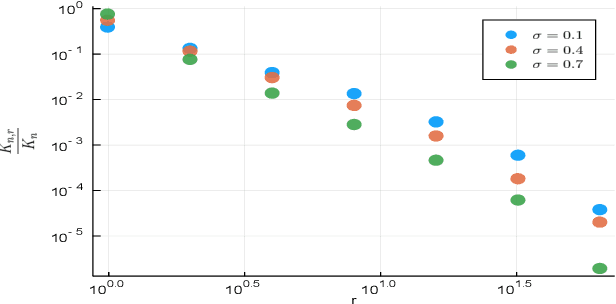Non-exchangeable feature allocation models with sublinear growth of the feature sizes
Paper and Code
Mar 30, 2020



Feature allocation models are popular models used in different applications such as unsupervised learning or network modeling. In particular, the Indian buffet process is a flexible and simple one-parameter feature allocation model where the number of features grows unboundedly with the number of objects. The Indian buffet process, like most feature allocation models, satisfies a symmetry property of exchangeability: the distribution is invariant under permutation of the objects. While this property is desirable in some cases, it has some strong implications. Importantly, the number of objects sharing a particular feature grows linearly with the number of objects. In this article, we describe a class of non-exchangeable feature allocation models where the number of objects sharing a given feature grows sublinearly, where the rate can be controlled by a tuning parameter. We derive the asymptotic properties of the model, and show that such model provides a better fit and better predictive performances on various datasets.
 Add to Chrome
Add to Chrome Add to Firefox
Add to Firefox Add to Edge
Add to Edge